From the December 6, 1991 Chicago Reader. — J.R.
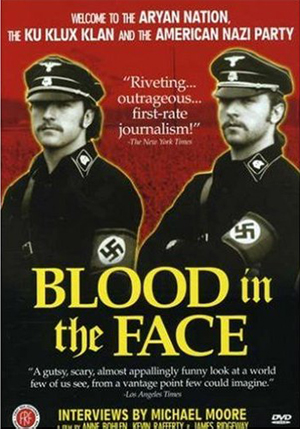
BLOOD IN THE FACE
** (Worth seeing)
Directed by Anne Bohlen, Kevin Rafferty, and James Ridgeway
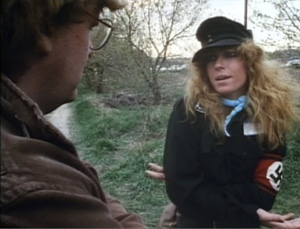

If memory serves, it was around my junior year in college, during the mid-60s, when a conservative classmate took my brother and me to a John Birch Society meeting in Hyde Park, New York, held inside a trailer in a trailer camp. The friend advised us to conceal our identities as liberal Jews (he was half Jewish himself) and try to blend in with the surroundings, which we did.
It was a sparsely attended meeting. Before that we made small talk with the handful of other people present — including the couple who owned the trailer and a young man who identified himself as the son of communists and who cheerfully explained that the society had deliberately adopted the structure of the Communist Party, complete with cell meetings like this one and vows of secrecy. He and everyone else in the room seemed friendly, normal everyday folks, until the film projector blew a fuse just as they began to screen a movie.
Then the paranoid speculations began: they made extensive flashlight searches of the yard around the trailer, looking for spies and saboteurs. Read more
From Sight and Sound (Winter 1990/91). -– J.R.
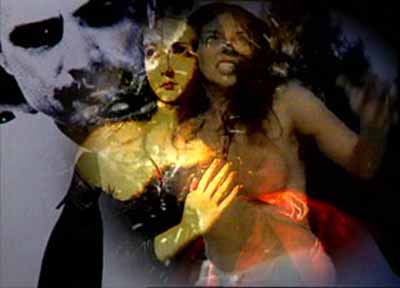
It’s no secret that serious film criticism in print has become an increasingly scarce commodity, while ‘entertainment news’, bite-size reviewing and other forms of promotion in the media have been steadily expanding. (I’m not including academic film criticism, a burgeoning if relatively sealed-off field which has developed a rhetoric and tradition of its own-the principal focus of David Bordwell’s fascinating recent book, Making Meaning) But the existence of serious film commentary on film, while seldom discussed as an autonomous entity, has been steadily growing, and in some cases supplanting the sort of work which used to appear only in print.
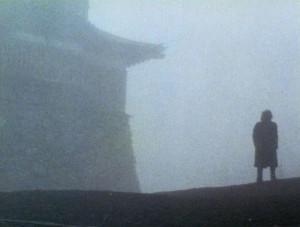
I am not thinking of the countless talking-head ‘documentaries’ about current features — actually extended promos financed by the studios or production companies — which include even such a relatively distinguished example as Chris Marker’s AK (1985), about the making of Kurosawa’s Ran. The problem with these efforts is that they further blur the distinction between advertising and criticism, and thus make it even harder for ordinary viewers to determine whether they are being informed about something or simply being sold a bill of goods. What I have in mind are films about films and film-makers which seriously analyse or document their subjects. Read more
This appeared in the Chicago Reader (September 16, 1994). — J.R.
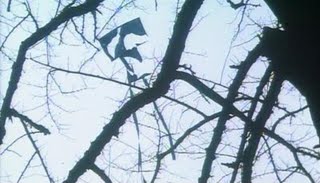
**** THE BLUE KITE
(Masterpiece)
Directed by Tian Zhuangzhuang
Written by Xiao Mao
With Zhang Wenyao, Chen Xiaoman, Lu Liping, Pu Quanxin, Li Xuejian, Guo Baochang, Zhong Ping, and Chu Quanzhong.
Covering 15 years of modern Chinese history, from 1953 to 1968, The Blue Kite is powerful less for what it says about continuity in history than for what it implies about history disrupting people’s lives. The two things that matter most to Tietou, the fictional hero, apart from his mother, are the courtyard just off the Dry Well Lane apartment where his parents move in the opening scene and the title toy — actually a series of toys — he’s given to play with by his father. Each blue kite we see over the course of the film winds up getting stuck in one of the courtyard’s trees and needs to be replaced; more or less the same thing happens with the Tietou’s father (eventually supplanted by two stepfathers) and Tietou’s sense of home, not to mention his sense of identity. All that he retains, and only after a struggle, is a certain sense of morality bequeathed by his mother and a certain sense of place bequeathed by the courtyard. Read more






